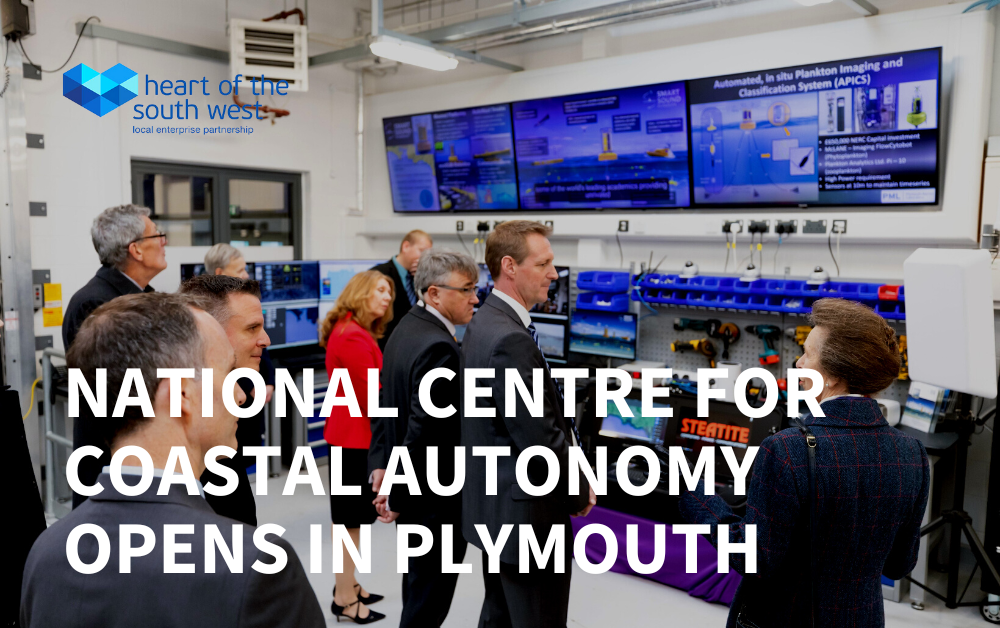The potential for autonomous technology to advance understanding of our constantly evolving ocean and coastlines has taken a major step forward with the launch of the National Centre for Coastal Autonomy.
The UK’s first autonomous fully integrated coastal observing and monitoring network employs the latest autonomous technologies to drive towards a net zero oceanographic capability, delivering world-leading and cutting edge science.
A fleet of state-of-the-art surface autonomous vessels, sub-surface coastal platforms and sophisticated scientific buoys are integrated on a unique high-speed award-winning marine communications network. The high resolution data it produces will support policy makers and other organisations to enable good stewardship and an enhanced understanding of the coastal environment.
It will also deliver a platform to train and develop the next generation of scientists and technologists in partnership with industry and the public sector.
The National Centre for Coastal Autonomy has been founded by the partners in Marine Research Plymouth – the Marine Biological Association, Plymouth Marine Laboratory and the University of Plymouth.
It was officially launched by HRH The Princess Royal, who met representatives from Marine Research Plymouth as well as delegates working in the city’s autonomous marine sector, and funders and policymakers from the wider UK.
Plymouth is well-established as an international centre of excellence in the development and application of coastal marine autonomy.
Professor Judith Petts CBE, Vice-Chancellor of the University of Plymouth, said: “If we are to bring about lasting and positive change for the environment, we need to employ the latest technological capabilities. Delivering policy relevant data that can identify challenges and inform solutions at a local and global scale is essential. By equipping our students with this knowledge, we are not only enabling a technological revolution but empowering the future workforce to apply it to societal and economic benefit.”
Professor Icarus Allen, Chief Executive of Plymouth Marine Laboratory, said: “The centre builds upon Plymouth’s incredible legacy as a world-leading hub for marine science and technology and creates a unique capability in coastal science and net zero oceanography for the UK. It’s a pioneering initiative to expand the horizons of scientific endeavour using the very latest in technology and innovation. We’re incredibly proud to be a part of it, as we work towards a sustainable ocean future.”
Professor Willie Wilson, Director of the Marine Biological Association, said: “We plan to work with our Plymouth partners at the new Centre to develop autonomous biodiversity monitoring of the global ocean using cutting edge biomolecular tools. Ultimately it will allow us to develop biodiversity forecasting as a tool to help manage the impacts of climate change. It is a perfect example of the synergy of the Marine Research Plymouth partnership that will allow us to develop advanced solutions for ocean management.”
Karl Tucker, Chair of the Heart of the South West LEP, said: “The launch of the National Centre for Coastal Autonomy is a fantastic next step in Plymouth’s leading role in the country’s marine innovation and technologies. We are excited to see how the advanced connectivity of the Smart Sound Connect, funded through our Growth Deal funding, will support the Centre’s world-leading activities.”
Between them, the partners in Marine Research Plymouth already have world-leading capabilities in remote operations, maritime cyber security, assured autonomy, AI and machine learning, advanced navigation as well as the understanding, and conservation, of the marine environment. This new initiative will harness that capability to produce monitoring data that can be used across sectors including, offshore renewable energy, aquaculture, defence and address key scientific questions relating to the climate and biodiversity nexus on a global scale.
It will build on the success of innovative and ongoing programmes such as the Western Channel Observatory and Smart Sound Plymouth. It will also support the UK Government’s net-zero and clean maritime agendas, and expand the nation’s capability to deliver autonomous marine platforms, technology, and research in a safe and sustainable manner.


